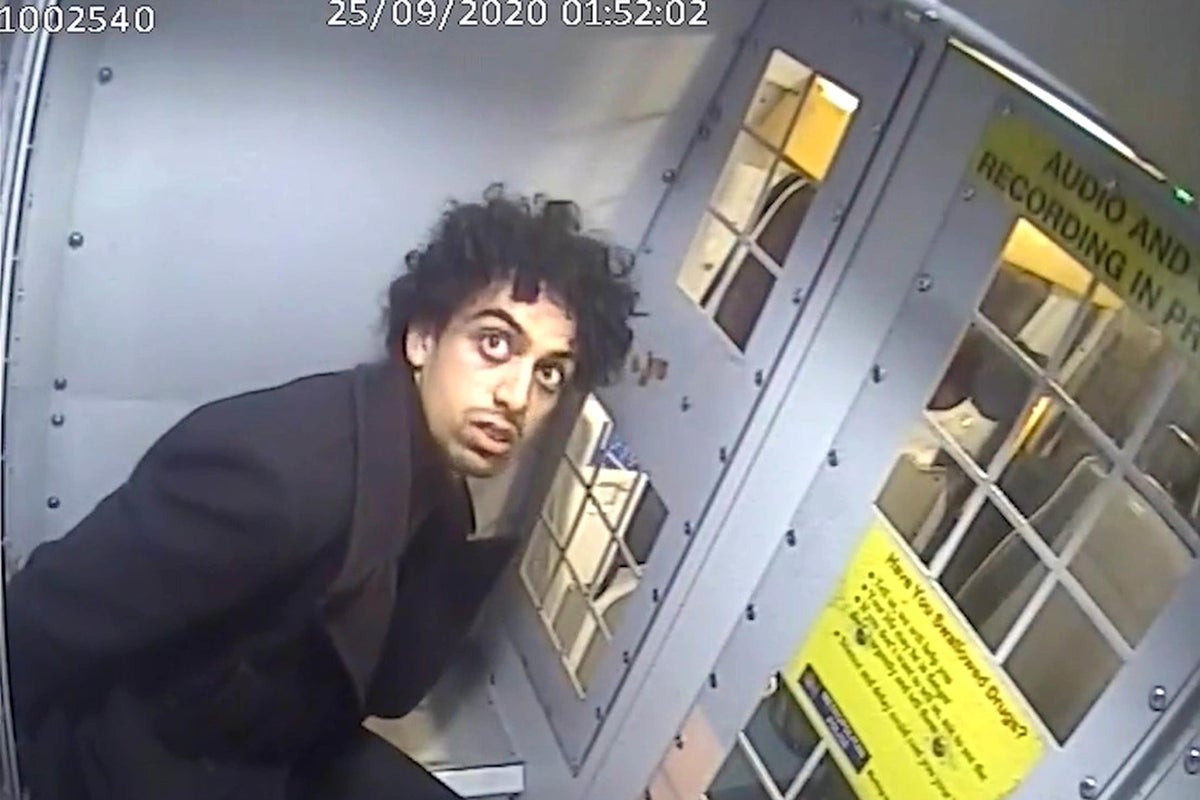
A gunman who shot dead a police custody sergeant in a holding cell was “thinking ahead” and does not have a defence of diminished responsibility, a consultant forensic psychiatrist has told a murder trial.
Dr Nigel Blackwood told jurors trying Louis De Zoysa that the 25-year-old had “demonstrated a clear ability to control his actions” when he shot Met Police officer Matt Ratana.
Sgt Ratana, aged 54, died of a chest wound after being hit by two bullets at Croydon’s Windmill Road custody block in South London.
De Zoysa, from Banstead, Surrey, denies committing murder while he was handcuffed in a holding room, after being found with bullets in south London in the early hours of September 25 2020.
After being called by the Crown as an expert witness at Northampton Crown Court on Friday, Dr Blackwood was asked for his opinion of defence suggestions that De Zoysa had suffered an autistic meltdown.
Dr Blackwood told the court he did not believe De Zoysa was hyperventilating on footage showing him inside a police van for around eight minutes.
The expert witness said: “He takes a physically deep breath on a couple of occasions.
“He clearly requests an appropriate adult, mentioning his vulnerability, and he asks for the duty solicitor.
“This is clearly somebody that is thinking ahead to the police station. He is not in a hyper-aroused state unable to think clearly – he is thinking very clearly and logically in that moment.
“To my mind any deficits he has… do not impact his understanding of what is happening.
“He answers police questions appropriately – there is nothing in that series of interactions (with police officers) that, because of his autism, he is struggling to understand.”
Answering questions from prosecutor Duncan Penny KC, Dr Blackwood said he had interviewed De Zoysa four times in 2021, 2022 and 2023 and been provided with background details of his school, medical and employment history.
De Zoysa was highly intelligent, Dr Blackwood said, adding that he did not think there was any relationship between the defendant’s autism and his decision not to tell officers he was carrying a hidden and loaded revolver.
The court has heard that De Zoysa was caught on in-cell CCTV as he fired the antique gun four times, having discharged an initial three shots within three seconds, inflicting a fatal chest wound on Sgt Ratana.
Mr Penny asked Dr Blackwood for his view of defence suggestions that the use of the weapon by De Zoysa, who had been smoking cannabis, was “uncontrolled and impulsive”.
Dr Blackwood answered: “I don’t think that emerges from the evidence that we have.
“He demonstrated a clear ability to control his actions. He retrieves the gun, has it in his hand, has time to consider what he is going to do with it, and then discharges it.”
As well as saying that, in his opinion, a partial defence to murder of diminished responsibility did not apply in the case, Dr Blackwood told the jury he did not accept that De Zoysa experienced an autistic meltdown at the police station, which he had been taken to before after a dispute with his father.
During cross-examination, defence KC Imran Khan questioned Dr Blackwood about comments made by De Zoysa which are said to show the “trigger” for the alleged meltdown may have been a “need for personal space”.
Mr Khan asked Dr Blackwood if it had surprised him that an autistic meltdown had been put forward by a consultant forensic psychiatrist called by the defence.
Dr Blackwood responded: “When you look at all the evidence in the round, yes it did.”
Earlier in the trial, Mr Khan told the jury that De Zoysa says he did not mean to or want to kill Sgt Ratana, or to cause him really serious harm.
“Louis De Zoysa says that he is not guilty of murder,” Mr Khan said.
“The reason Louis De Zoysa says he is not guilty of murder is because at the time he was suffering from an abnormality of mental function.”
The trial has been adjourned until Wednesday next week.







